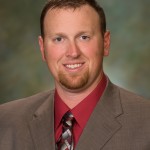Academic Minute Best-Of for 2016!
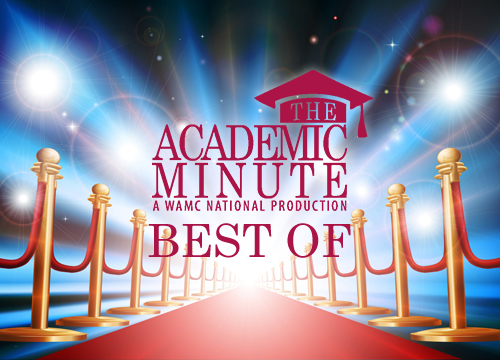
Enjoy some of our best segments from September 2015 – August 2016 right here!
 Florin Dolcos of the University of Illinois had a very popular segment last January on anxiety disorders and optimism.
Florin Dolcos of the University of Illinois had a very popular segment last January on anxiety disorders and optimism.
Anxiety Disorders and Optimism
Prof. Florin Dolcos is a Faculty Member in the Department of Psychology, a member of the Beckman Institute’s Cognitive Neuroscience group, and the Director of the Social, Cognitive, Personality, and Emotional (SCoPE) Neuroscience Laboratory at the University of Illinois, Urbana-Champaign.
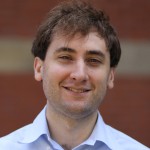 Andrew Stokes of Boston University delved into the obesity paradox in our most popular Health segment of the year.
Andrew Stokes of Boston University delved into the obesity paradox in our most popular Health segment of the year.
Research and Teaching Interests include: Global health, demography, medical sociology, epidemiology, health disparities, obesity, chronic disease, program evaluation, environmental health and quantitative methods.
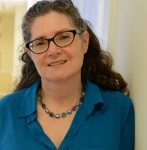 Our Commissioner’s Choice Award for this year goes to Sherry Linkon of Georgetown University who covered working class voters in this year’s Presidential Election. This award is chosen by our host Lynn Pasquerella, President of the American Association of Colleges and Universities in Washington, D.C.
Our Commissioner’s Choice Award for this year goes to Sherry Linkon of Georgetown University who covered working class voters in this year’s Presidential Election. This award is chosen by our host Lynn Pasquerella, President of the American Association of Colleges and Universities in Washington, D.C.
I do research in two areas: working-class studies and scholarship of teaching and learning. In working-class studies, much of my work explores the cultural meaning and social costs of deindustrialization. I’m currently working on a study of contemporary American literature that reflects the continuing influence of deindustrialization on working-class people and their communities.
Michael Kraus of Yale University told us if the clothes really do make the man in this fun and informative human behavior segment.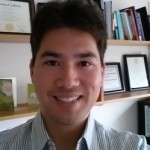
Professor Kraus’ research interest include how people perceive and explain the attainment of social status, how these status perceptions influence emotions and behavior in both cooperative and competitive settings, and how emotions guide group behavior.
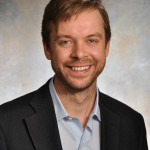 Jack Gilbert of the University of Chicago gave us quite a treat in his delivery of his piece on diversifying our microbiome. Listen and enjoy!
Jack Gilbert of the University of Chicago gave us quite a treat in his delivery of his piece on diversifying our microbiome. Listen and enjoy!
Professor Jack A Gilbert earned his Ph.D. from Unilever and Nottingham University, UK in 2002, and received his postdoctoral training at Queens University, Canada. He subsequently returned to the UK in 2005 to Plymouth Marine Laboratory at a senior scientist until his move to Argonne National Laboratory and the University of Chicago in 2010. Currently, Professor Gilbert is in Department of Surgery at the University of Chicago, and is Group Leader for Microbial Ecology at Argonne National Laboratory. He is also Associate Director of the Institute of Genomic and Systems Biology, Research Associate at the Field Museum of Natural History, and Senior Scientist at the Marine Biological Laboratory.
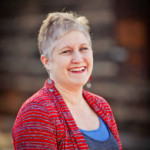 Ann Collier of Northern Arizona University reminded us that making art can be therapeutic.
Ann Collier of Northern Arizona University reminded us that making art can be therapeutic.
Dr. Ann Collier is a clinical psychologist with specialties in both health psychology and cross-cultural psychology. For her cross-cultural work, Dr. Collier uses Community-based Participatory Research (CBPR) models with indigenous people and refugees. Dr. Collier is actively developing projects that are relevant to both Pacific Islanders and Native American people to change health behaviors. She also studies the role of arousal and engagement in mood-repair and rejuvenation; this has been applied to her research with textile handcrafts in women, art-making, the do-it-yourself (DIY) and “Maker” movements.
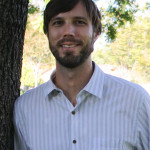
John Mayberry and James Graham of the University of the Pacific gave us our favorite sports episode of the year.
The work by John Mayberry, an associate professor of mathematics at University of the Pacific, and Pacific’s water polo coach, James Graham, is changing the way coaches look at game strategy. They are analyzing key performance indicators in college and international water polo matches and learning plenty along the way.
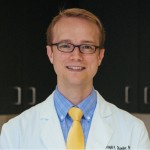 Joseph Chandler of Birmingham Southern University wrote our favorite music themed segment.
Joseph Chandler of Birmingham Southern University wrote our favorite music themed segment.
I specialize in the behavioral neuroscience of consciousness, including individual differences in sleep and sleep loss, temporal meta-awareness, and social justice.
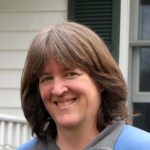 Robin Queen of the University of Michigan told us all about those darn typos and what they say about us.
Robin Queen of the University of Michigan told us all about those darn typos and what they say about us.
Robin Queen is Arthur F. Thurnau Professor and Professor of Linguistics, English Language and Literatures and Germanic Languages and Literatures. Her teaching and research center on sociolinguistic questions related to language contact, language ideology, and language change. She has also considered questions concerning the ties between language and social identities. Her work draws on data from a wide variety of sources, including Turkish-German bilinguals, American lesbians, daytime television dramas and American films dubbed into German. She is currently working on a book-length manuscript about language variation in the mass media that is under contract for Wiley-Blackwell.
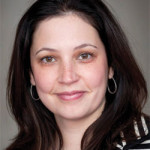 Mary Murphy of Indiana University brought discrimination in STEM programs to our attention.
Mary Murphy of Indiana University brought discrimination in STEM programs to our attention.
Discrimination of Women in STEM
Dr. Murphy is an assistant professor in Indiana University Bloomington College of Arts and Sciences’ Department of Psychological and Brain Sciences and principle investigator of the Mind and Identity in Context Lab at IU Bloomington.
Murphy’s work focuses on developing and testing theories about how people’s social identities and group memberships interact with the contexts they encounter to affect their thoughts, feelings, behaviors, physiology and motivation.
 Peter Polos of Seton Hall University explored the harm done by not turning off your cellphone at night.
Peter Polos of Seton Hall University explored the harm done by not turning off your cellphone at night.
Dr. Peter Polos, MD, PhD, FCCP, FAASM, is a graduate of Louisiana State University School of Medicine in New Orleans, and is board certified in pulmonary and sleep medicine. He is Clinical Associate Professor, Dept. of Neuroscience, Seton Hall University School of Health and Medical Sciences; Attending Staff at the Sleep Medicine Division of the JFK Neuroscience Institute; and Founder and President of Global Clinical Consulting.
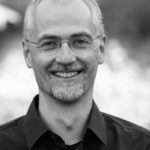 Berthold Hoeckner of the University of Chicago discussed wisdom and whether its only in the mind or if the body has a part to play too.
Berthold Hoeckner of the University of Chicago discussed wisdom and whether its only in the mind or if the body has a part to play too.
Wisdom, Meditation and Ballett Too
Berthold Hoeckner is a music historian specializing in 19th- and 20th-century music. Research interests include aesthetics, Adorno, music and literature, film music and visual culture, the psychology and neuroscience of music. Awards and fellowships include the Alfred Einstein Award of the American Musicological Society (1998), a Humboldt Research Fellowship (2001/2), a Mellon New Directions Fellowship (2006/7), and a Faculty Fellowship at the Franke Institute of the Humanities (2012/13).
 Brianna Mount of Black Hills State University cooked up our favorite Science segment talking about the ever baffling Dark Matter.
Brianna Mount of Black Hills State University cooked up our favorite Science segment talking about the ever baffling Dark Matter.
Dr. Brianna Mount is a research assistant professor in physics at Black Hills State University. She received her PhD from Florida State University. Her current research centers around underground science, particularly at the Sanford Underground Research Facility in Lead, SD.
Thank you for listening! Please join us again on 2017 for more interesting and fascinating academic research.
Happy Holidays from The Academic Minute team.

